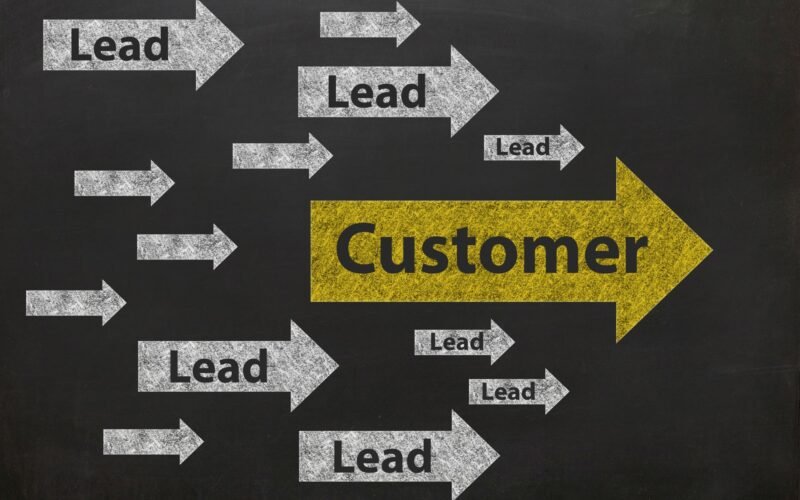|
Getting your Trinity Audio player ready...
|
In the world of business growth, lead generation and business development are two essential strategies that often get confused. While both aim to expand a company’s market reach and increase revenue, they involve distinct approaches. Understanding the difference between lead generation and business development will help you determine which strategy is best suited for your business goals. In this article, we’ll explore the unique roles of both processes, how they work together, and how to optimize each for success.
What is Lead Generation?
Lead generation refers to the process of attracting potential customers (leads) and capturing their interest in your product or service. It focuses on building a pipeline of qualified prospects who are likely to convert into paying customers. The goal of lead generation is to fill the sales funnel with new contacts who can eventually move through the purchasing process.
How Lead Generation Works
Lead generation typically starts by identifying your target audience. Once you have a clear understanding of who your potential customers are, various tactics are used to attract and capture their information:
- Content marketing: Creating valuable content such as blog posts, e-books, or videos to attract potential customers.
- Email marketing: Using emails to nurture prospects and encourage them to learn more about your offerings.
- Social media campaigns: Engaging with audiences on platforms like Facebook, Instagram, and LinkedIn to build awareness and capture leads.
- SEO and PPC: Optimizing your website and using paid advertising to drive traffic and capture leads through forms or sign-ups.
Lead generation is often managed by the marketing team and focuses on creating opportunities for the sales team to close deals.
What is Business Development?
Business development, on the other hand, is a broader concept that encompasses a wide range of activities designed to grow a business. It includes identifying new opportunities, forming strategic partnerships, and exploring new markets. While lead generation focuses on attracting individual customers, business development often looks at building long-term relationships and expanding the company’s network.
How Business Development Works
Business development can involve a variety of strategies, depending on the company’s goals:
- Forming strategic partnerships: Identifying companies that complement your own and forming partnerships to offer joint solutions.
- Market expansion: Exploring new geographical regions or customer segments to expand the company’s reach.
- Negotiating deals: Working on collaborations, mergers, or acquisitions that can help scale the business.
- Building client relationships: Fostering long-term relationships with key clients to ensure sustained business growth.
While business development activities may involve the sales team, they often require close collaboration with leadership and other departments to ensure alignment with overall company goals.
Key Differences Between Lead Generation and Business Development
While both processes aim to grow the business, there are clear distinctions in their approaches and objectives. Here’s a breakdown of the key differences between lead generation and business development:
1. Focus and Scope
- Lead Generation: Primarily focuses on acquiring new potential customers by building a database of leads.
- Business Development: Has a broader focus on overall business growth, including strategic partnerships, client relationships, and market expansion.
2. Tactics Used
- Lead Generation: Relies on marketing tactics like content creation, SEO, paid advertising, and social media to attract prospects.
- Business Development: Involves strategic initiatives such as forming partnerships, negotiating deals, and exploring new markets.
3. Team Involvement
- Lead Generation: Mostly managed by the marketing team, with some input from sales.
- Business Development: Typically involves senior leadership, business development teams, and key stakeholders from multiple departments.
How Lead Generation and Business Development Work Together
While lead generation and business development are distinct processes, they are also complementary and can work together to fuel business growth. Lead generation brings in new prospects, while business development focuses on building deeper relationships and exploring broader opportunities for long-term success.
Here’s how they work in tandem:
1. Building a Sales Pipeline
Lead generation brings potential customers into the sales pipeline, where they can be nurtured through various stages of the buying process. Meanwhile, business development can create opportunities for those leads by forming partnerships or offering additional services that appeal to them.
2. Scaling Through Partnerships
Business development may involve forming strategic partnerships that allow your company to offer new products or services. These partnerships can, in turn, fuel lead generation by attracting new audiences and creating cross-promotional opportunities.
3. Expanding Into New Markets
When business development initiatives focus on market expansion, they open up opportunities for lead generation in new geographical regions or customer segments. For instance, expanding into an international market may require tailored lead generation strategies to attract local audiences.
Which Strategy is Right for Your Business?
Deciding between focusing on lead generation or business development depends on your business goals and current growth stage. Both strategies offer valuable ways to expand your business, but your specific needs may dictate which one to prioritize:
1. If You Need More Customers:
If your sales team is struggling to find enough potential clients to convert, lead generation should be your primary focus. Building a strong pipeline of qualified leads is essential for increasing sales.
2. If You’re Ready to Scale:
If your business is stable but you’re looking to expand into new markets or form strategic partnerships, business development will likely be more beneficial. It helps you explore long-term growth opportunities that go beyond individual sales.
How to Maximize Both Lead Generation and Business Development
Both strategies are important for sustained growth, and there are ways to integrate them for maximum impact:
1. Invest in Content Marketing
Content marketing can serve both lead generation and business development efforts. High-quality blog posts, e-books, and case studies not only attract potential customers but also position your company as an authority, which helps with forming partnerships and expanding your network.
2. Use CRM Tools
Customer relationship management (CRM) tools help track leads and manage business development efforts. These tools enable businesses to monitor interactions with prospects and partners, ensuring no opportunities are missed.
3. Focus on Building Relationships
Whether you’re generating leads or working on business development, building strong, genuine relationships is key. For lead generation, this means nurturing leads through personalized communication. For business development, it involves creating value for potential partners and long-term clients.
FAQs
What is the main goal of lead generation?
The primary goal of lead generation is to attract and capture potential customers who are likely to convert into paying clients, thereby filling the sales pipeline.
How does business development differ from sales?
While sales focus on closing deals with individual customers, business development is broader and includes building partnerships, expanding markets, and creating long-term growth opportunities.
Can small businesses benefit from both lead generation and business development?
Absolutely! Both strategies can help small businesses grow. Lead generation brings in new customers, while business development focuses on creating relationships and exploring opportunities for long-term success.
How do I know if I should focus on lead generation or business development?
If you need more customers, lead generation should be your focus. If you’re ready to scale and explore new markets or partnerships, business development is the better strategy.








